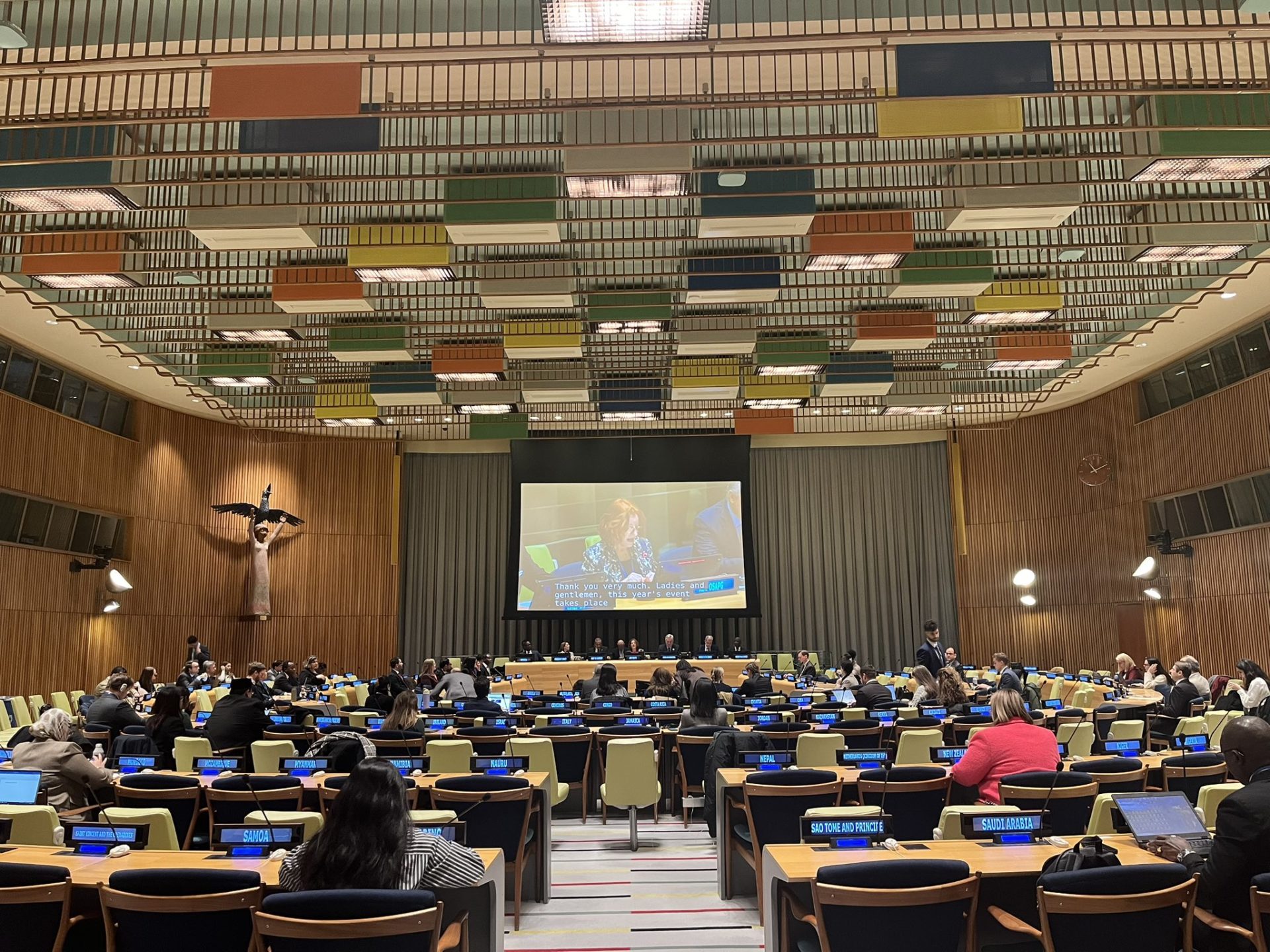
“In a world plagued by division, mistrust and violence, the dark spectre of genocide is still with us,” stated United Nations (UN) Secretary-General António Guterres on the occasion of the International Day of Commemoration for Victims of Genocide and the Prevention of this Crime, coinciding with the 76th anniversary of the adoption of the Convention on the Prevention and Punishment of the Crime of Genocide.
The words Never again! are not merely a promise, Guterres believes, but a commitment to never forget the lives lost, the futures stolen, and the immense suffering endured.
“From Rwanda to Srebrenica to the horrors of the Holocaust, we must never forget those innocent people killed simply because of who they were. The convention is a pledge to the victims and survivors of genocide to ensure that these atrocities never occur again. Tragically in a world plagued by division, mistrust and violence the genocide is still with us,” said Guterres.
On behalf of the victims and survivors of genocide, he stated that “all governments must fully enforce accountability for perpetrators,” strengthen prevention tools, address education, and counter misinformation and disinformation that can fuel hate speech and genocidal intent.
“Let’s continue fighting for peace and justice and for accountability,” emphasized Guterres, echoing a message delivered by his Chief of Staff, Earle Courtenay Rattray, to the UN General Assembly during the December 9 commemoration organized by the Office of the Special Adviser on the Prevention of Genocide in New York.
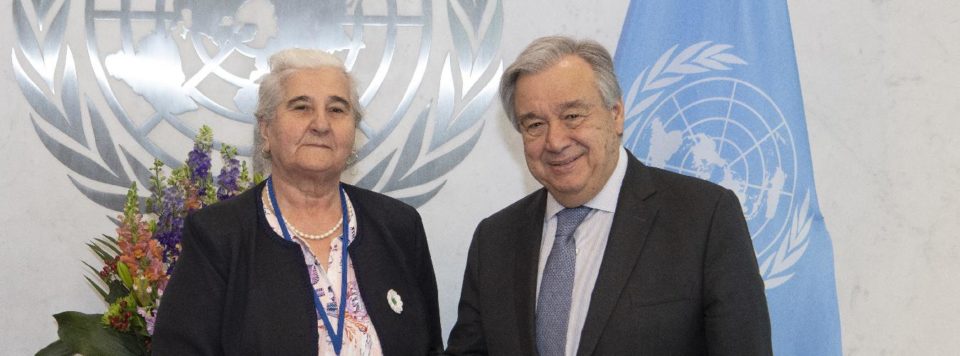
The commemoration before the UN General Assembly holds additional significance as it was organized with a special focus on marking 30 years since the genocides in Rwanda and Srebrenica. In April 2024, the 30th anniversary of the genocide against the Tutsi in Rwanda was observed. Next July, the 30th anniversary of the Srebrenica genocide will be commemorated. By focusing on the experiences of Rwanda and Bosnia and Herzegovina (BiH), the event highlighted the role of commemoration and memorialization not only in honoring the victims and survivors of genocide but also as an effective mechanism for preventing future genocides.
Lessons from Rwanda and Bosnia
“The lessons learned from the horror of what happened in Rwanda and Srebrenica speak to the need to enhance our global ability to understand and respond to risk factors and to do so efficiently very early on and in a timely manner,” said Virginia Gamba de Potgieter, Acting UN Special Adviser on the Prevention of Genocide, in a message read by Mo Bleeker, UN Special Adviser on Responsibility to Protect, who moderated the panel session during the December 9 commemoration.
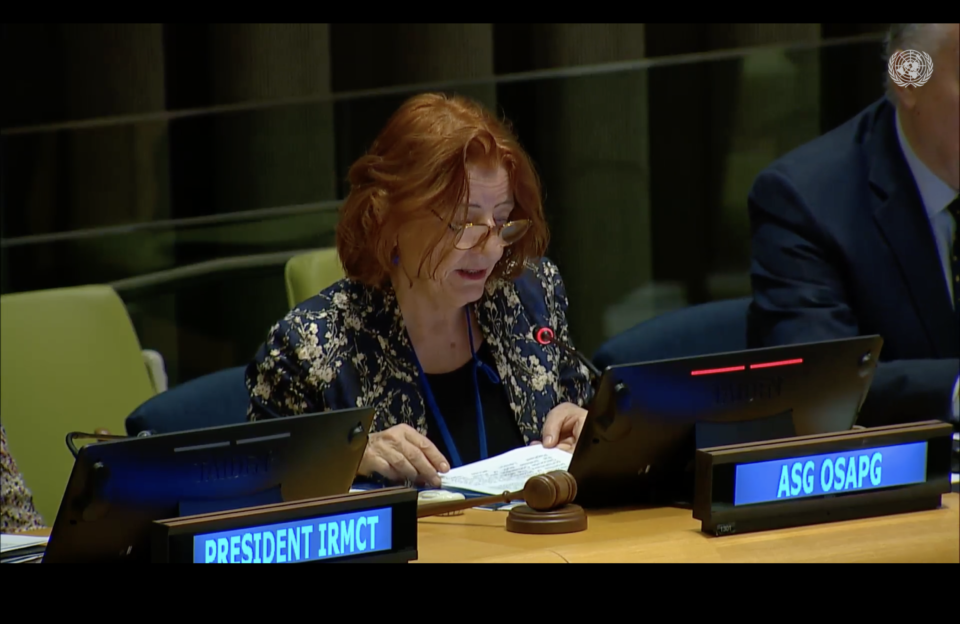
Three decades after the horrific genocides in Rwanda and Srebrenica, Gamba noted that for many families, these have been “excruciating years dedicated to searching all possible information on the fate of their loved ones while trying to counter increasing and very concerning trends of genocide denial and even purification of war criminals.”
Gamba stressed that memorialization and commemoration serve not only as instruments of remembrance but also as pillars of dignity for survivors and as a platform for developing and sharing a variety of knowledge on prevention.
Velma Šarić, President and Founder of the Post-Conflict Research Center, stated that the courageous struggle of the Mothers of Srebrenica made it possible to establish the Srebrenica Memorial Center in BiH, the International Commission on Missing Persons, the Missing Persons Institute, and many other transitional justice institutions. Furthermore, she added, the Mothers of Srebrenica played a fundamental role in the trials before both the International Criminal Tribunal for the former Yugoslavia (ICTY) and the Court of BiH, and their advocacy led to the adoption of the UN Resolution on the Srebrenica Genocide (UN, A/78/L.67/Rev.1).
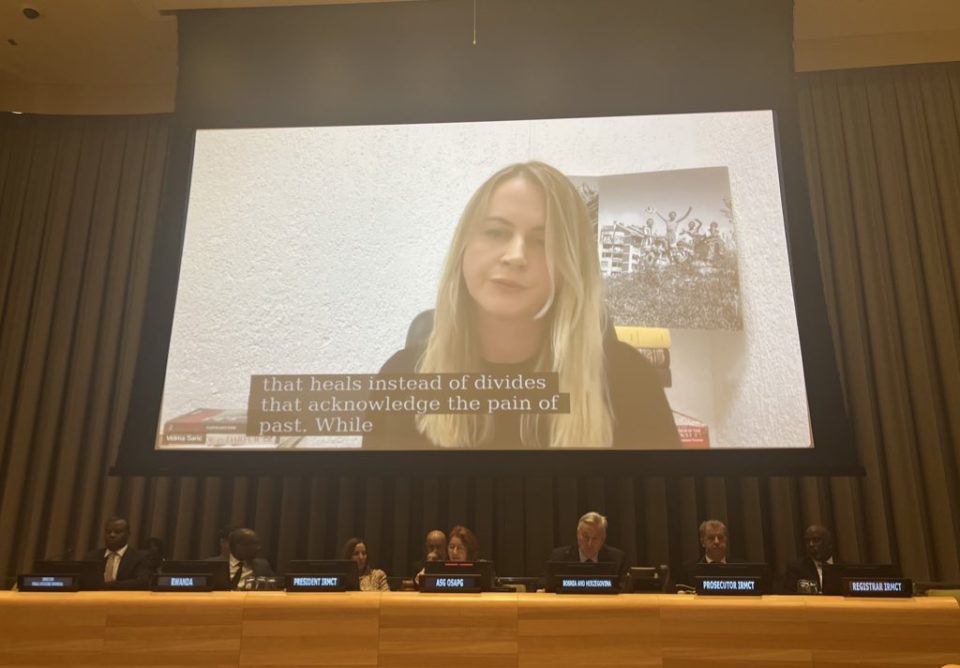
Citing Munira Subašić, President of the Movement of Mothers of the Srebrenica and Žepa Enclaves, Šarić reiterated that “Without truth, there is no justice; without justice, there is no trust; and without trust, there is no reconciliation.” She also emphasized the need to reopen discussions on transitional justice strategy in BiH, which ceased in 2013, highlighting that the participation of victims and survivors must be a priority in this process.
Judge Graciela Gatti Santana, President of the International Residual Mechanism for Criminal Tribunals (IRMCT), stated that in the aftermath of genocide, justice serves as a crucial mechanism to restore dignity to the victims, hold perpetrators accountable, and establish a record of truth that counters the denial and distortion of facts.
“The ICTY and now the residual mechanism stand as a testament to this principle. These tribunals were not merely judicial bodies. They served as enduring records of the atrocities committed, providing an unassailable foundation for education and commemoration through their work,” said Santana. She added that the while courts and judicial mechanisms cannot directly prevent genocide, their findings play a critical role in memorialization.
Serge Brammertz, Prosecutor of the International Residual Mechanism for Criminal Tribunals, explained that prosecutors become involved when it is too late, meaning when prevention has failed.
“The Convention on the Prevention and Punishment of the Crime of Genocide speaks about prevention but also about punishment and this is where we are coming in, because punishment should lead to deterrence and deterrence to avoiding having other massive crimes, other genocides being committed,” said Brammertz. He emphasized the importance of criminal prosecution and the legal process in general, because it creates a platform for commemoration and memorialization to ensure that what is being honored is proven and accurate and can be protected from revisionism.
Emir Suljagić, Director of the Srebrenica Memorial Center, said that commemoration and memorialization play over violence and future genocides. He believes that it is the prerogative of each group of survivors to decide how and what they will remember.
“When we commemorate, we effectively choose what is worth remembering, what is there for history and what is not, and it is important that this process is centered around the survivors of atrocities as well as victims. Now, in the context of Srebrenica itself, where over 8,000 men and boys were murdered in 1995, there’s a number of efforts that we are taking. The first is in the field of education and raising awareness,” said Suljagić. He continues that the role of memorials and remembrance events is to raise awareness and educate the public about the social, political, and historical contexts that led to mass atrocities.
Šarić emphasized that through their advocacy, the victims and survivors of genocide contributed to the adoption of the UN resolution on Srebrenica, which places memorialization at the forefront of facing the past.
“Currently, we are in a state of frozen conflict with everyday nationalistic rhetoric, genocide denial, and hate speech that poses a risk to violence, transgenerational trauma that burdens the young generation, and a lack of justice and accountability that are preventing reconciliation,” said Šarić. She also mentioned the persistence of ethnic segregation in education through the “two schools under one roof,” and the problematic inclusion of war criminals in textbooks in the Republika Srpska entity, among other issues.
It is encouraging, as she added, that the European Union has prioritized memorialization in Bosnia and Herzegovina’s accession process, emphasizing the need to adopt a state law on memorials.
Freddy Mutanguha, the director of the Kigali Genocide Centre, said that April 7 holds deep significance for the commemoration process in Rwanda.
“It’s a time to reflect on the darkest chapter in the national history, during which, in just 100, days over 1,000,000 Tutsi were brutally murdered. For the last 30 years, on the April 7th, people from across the country have gathered around giving more insight to pay tribute to the innocent victims of the genocide against Tutsi who perished and were laid to rest in the memorial graves. It is also the time to light the flame of remembrance, which symbolizes the responsibility and the commitment of today’s generation,” explained Mutanguha.
The bloodshed witnessed in 1994, as Mutanguha explained, was the culmination of deeply rooted hatred, discrimination, and the denial of basic human rights.
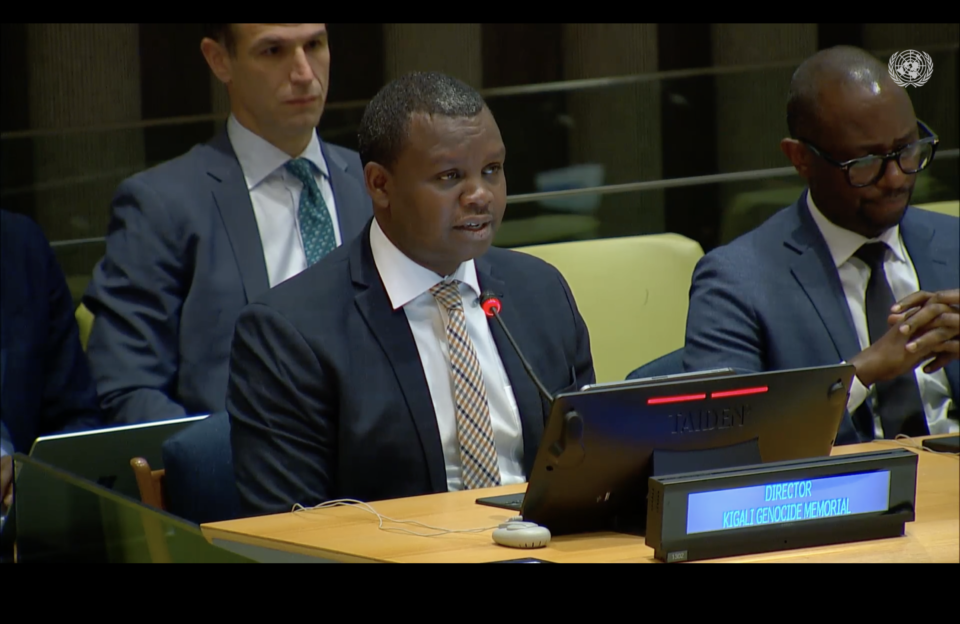
“This period of memorialization serves as a permanent remembrance and reminder of the destructive power of hate speech, the manipulation of ethnic identities, the erosion of empathy, and the collapse of societal values. We remember to honor the memory of those who perished and to offer comfort to those who survive. This is a period of deep mourning for survivors and their families,” said Mutanguha, urging unity in recognizing the importance of personal stories of reconciliation, forgiveness, and the rebuilding of trust.
In addition to providing spaces for survivors to process their trauma and reconnect with the memories of their loved ones, Mutanguha noted that memorials are also important sites of education. Bridging the gap between the past and the future, they help to combat denial and revisionism by preserving evidence, such as personal belongings, photographs, testimonies, and official documents.
Prevention is Needed
Genocide and other grave international crimes pose a threat today, Bleeker stated, adding that preventive action must be taken now.
“Our shared humanity demands that each of us actively implement our commitment to the prevention of genocide worldwide,” Bleeker emphasized.
Ambassador Philemon Yang, President of the UN General Assembly, said, “This day serves to reaffirm our collective commitment to ensure that such horrors are neither forgotten nor repeated. The role of commemoration and memory for the prevention of genocide underscores the power of memory as a tool for education and a shield against denial and apathy in remembering our history.”
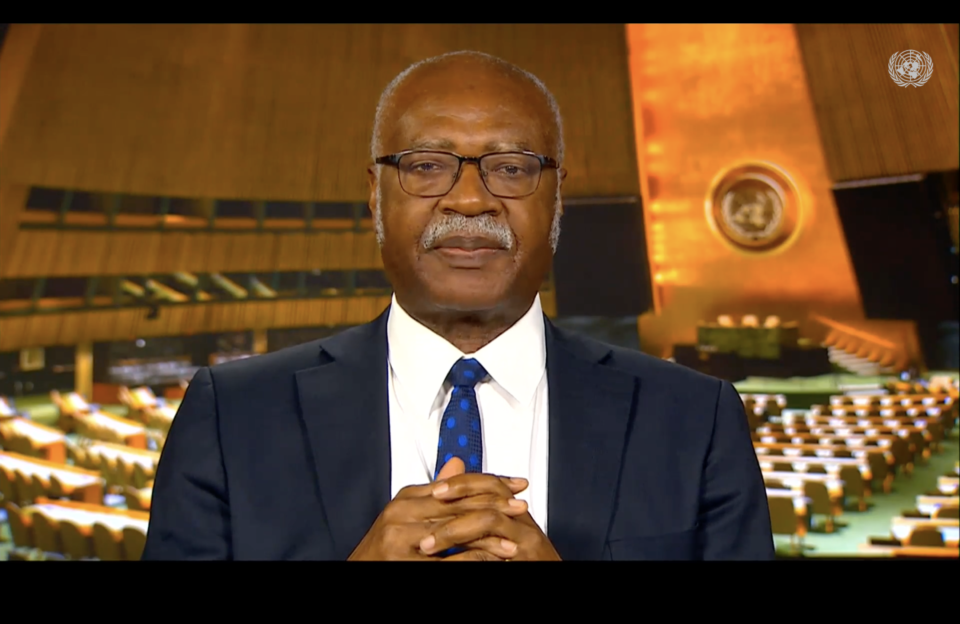
Yang added, “We can collectively chart a path forward that protects vulnerable populations, combats hate speech, and takes a firm stand against discrimination in all its forms.”
The event also featured addresses by Abubacarr M. Tambadou, Registrar of the International Residual Mechanism for Criminal Tribunals, Zlatko Lagumdžija, Permanent Representative of Bosnia and Herzegovina to the UN, Robert Kayinamura, Deputy Permanent Representative of Rwanda to the UN, and Leatitia Nyirazinyoye, Vice President of the Group of Former Students and Survivors of the Rwandan Genocide, who spoke about the significance of commemorations and memorialization in the prevention of genocide, war crimes, and crimes against humanity.






